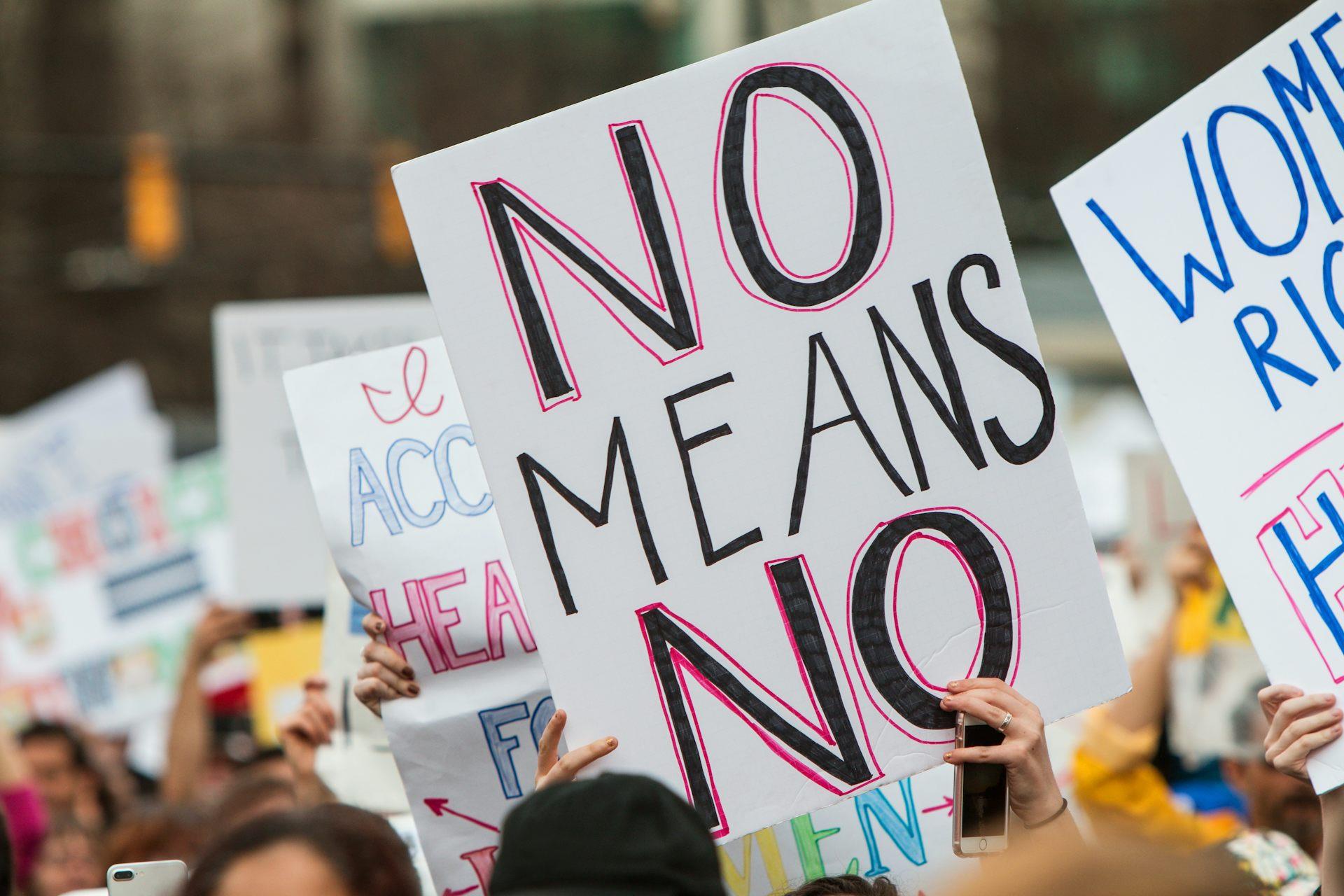
Rape Culture Is A Problem For Everyone Here Are Three Ways To Tackle It
Rape culture is a term used to describe societies that accept rape and sexual violence. It is defined as a“set of beliefs that encourage male sexual aggression and support violence against women”. It is a society where violence against women is often seen as sexy and therefore ignored, accepted or dismissed as a joke.
In the UK, this manifests in several ways. We see rape culture in the normalisation of sexual violence in schools, in suggestions that victims “must share some of the blame” for their own rape, and in violence against women dismissed as “pranks” in family courts. It is also expressed in rape myths (such as“men can't be raped”) and in victim-blaming (“she was asking for it because of how she was dressed”).
Rape culture normalises acts of sexual violence (against all genders) by allowing these acts to continue unchallenged. According to the Office for National Statistics, in 2024, the police recorded 71,227 complaints of rape in England and Wales. Of these, 2.7% were charged, of which about half resulted in conviction.
In part, these low figures are because, in England and Wales, the Crown Prosecution Service will only prosecute an offender if they believe a case has a “realistic prospect of conviction”. Rape culture undermines that realistic prospect, because it influences how society and courts think about and respond to victims of rape.
Myths about how a victim“should” behave, whether they have any interest in unconventional sexual practices or are promiscuous, their age or what a perpetrator looks like, all inform these low conviction rates. And claims of how false rape accusations ruin lives mean there is a reluctance to label a man a rapist or sex offender, especially if he is popular or successful.
Rape culture is bad for everyone. It means victims of sexual violence of any gender are not taken seriously, and it denigrates people based on their sexuality. That is why it is necessary to challenge it wherever we can. Here are three ways you can fight rape culture in your own life:
1. Be an active bystanderIntervening in assault or harassment does not require you to be a vigilante, nor to go head-to-head with a perpetrator of sexual violence, which can be dangerous. Organisations like Right to Be have developed bystander programmes which help people intervene in sexist, bullying or abusive conduct in different ways.
Their“5 Ds” of intervention are:
- distract the victim with an unrelated conversation to interrupt the encounter;
delegate: get someone (possibly someone with authority in the space, like a train guard) to help; document: film what is happening, if it is safe to do so;
delay: seek the victim out afterwards to offer help or check in with them; direct: if it feels safe and you feel able to, intervene directly and tell the perpetrator what they are doing is not OK. Keep this short and, once you have intervened, turn your attention to the victim and their needs.
My research explores how the shame around sex in general is much of what sustains rape culture. Sex crimes, because of their association with shame and taboo, are sensationalised and more morally charged than other crimes.
In my forthcoming book, I suggest that taking some of the stigma away from sex, and approaching it as ordinary, could help undo some of the rape culture we live in.
When we moralise about sex, it leads to expectations and preconceptions about how sex crimes happen. We create or believe myths about what“real” rape looks like and how“real” victims and perpetrators behave.

Changing rape culture is all of our responsibility. BluIz70/Shutterstock
We need a better, broader understanding of what sex is and how people have it, so we are better at telling the difference between consensual and non-consensual encounters. Sexual exceptionalism nurtures rape myths. For example, a victim with a history of sex work, or who has rape fantasies, or who is friends with their attacker, can still be raped. Taking the salaciousness out of sex helps us to think about scenarios like these more clearly.
Instead of being squeamish about sex or treating it as something sordid, we need to talk more about sex without shame. Sex crimes are dreadful, but unburdening them from this baggage will help tackle rape culture.
3. Educate without stigmaStudies of university-aged students show that many have a poor understanding of the complexity of consent. Many do not know that rape can take place within a partner relationship, or that“stealthing” (removing a condom during penetrative sex without letting the other person know) is a crime, or that men can be sexually assaulted.
Whether you are a teacher, parent or friend, it is important to have candid, non-sensational conversations about sex and sexual violence. Through sharing unstigmatised knowledge about sexual conduct, people can learn to identify rape myths, to understand why actions like staring or lewd comments are problems, to name sexual violence if it happens, and to express their feelings about it.
Rape culture is not about weak women and predatory men. It is not about“cultures who rape” and the rest of us who don't. Calling out rape culture is about challenging our preconceived notions, confronting our sexual squeamishness, and fighting for sexual justice for everyone.

Legal Disclaimer:
MENAFN provides the
information “as is” without warranty of any kind. We do not accept
any responsibility or liability for the accuracy, content, images,
videos, licenses, completeness, legality, or reliability of the information
contained in this article. If you have any complaints or copyright
issues related to this article, kindly contact the provider above.

















Comments
No comment